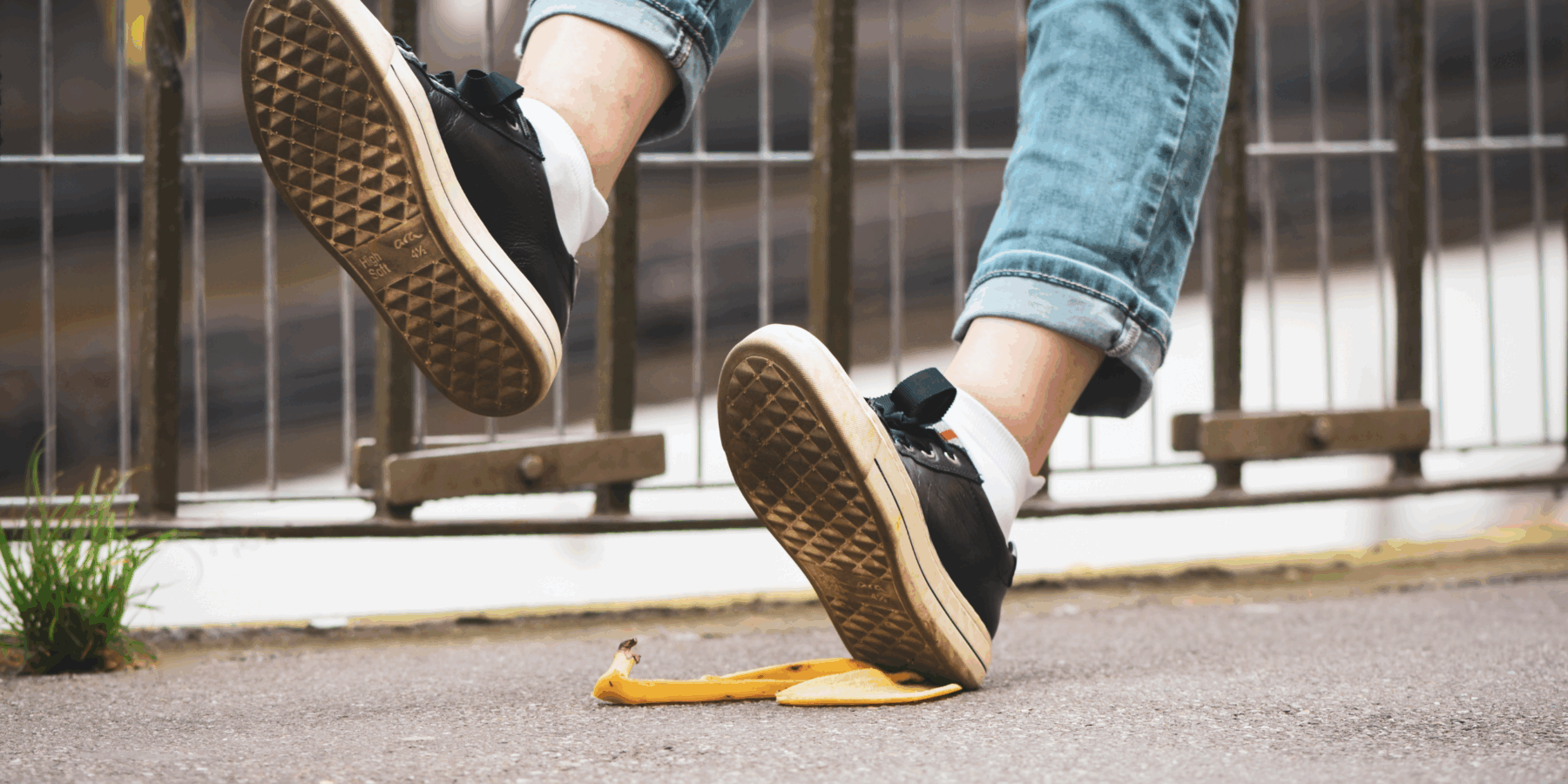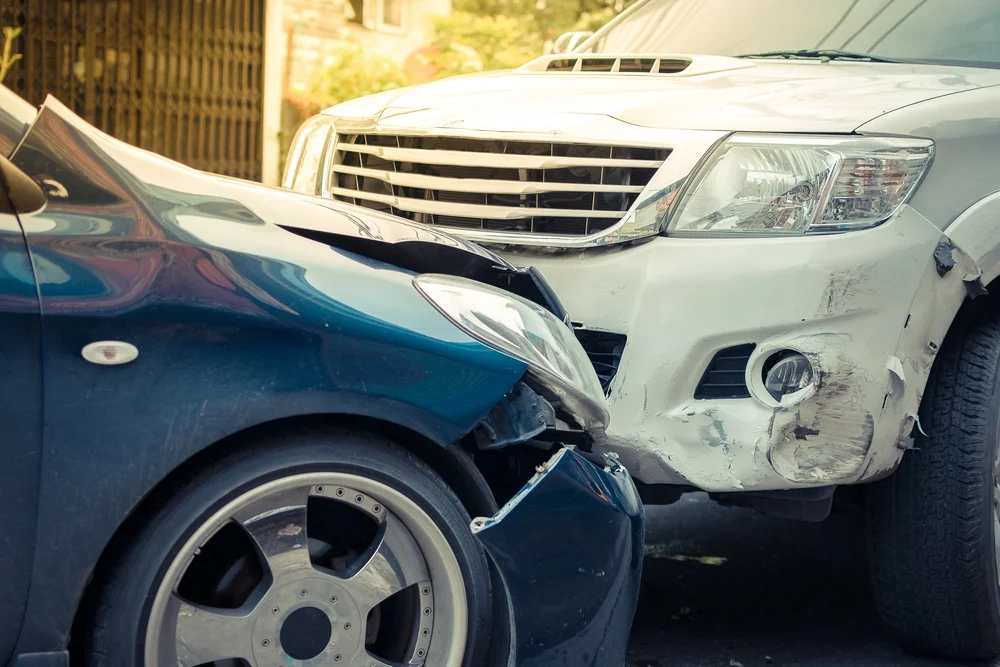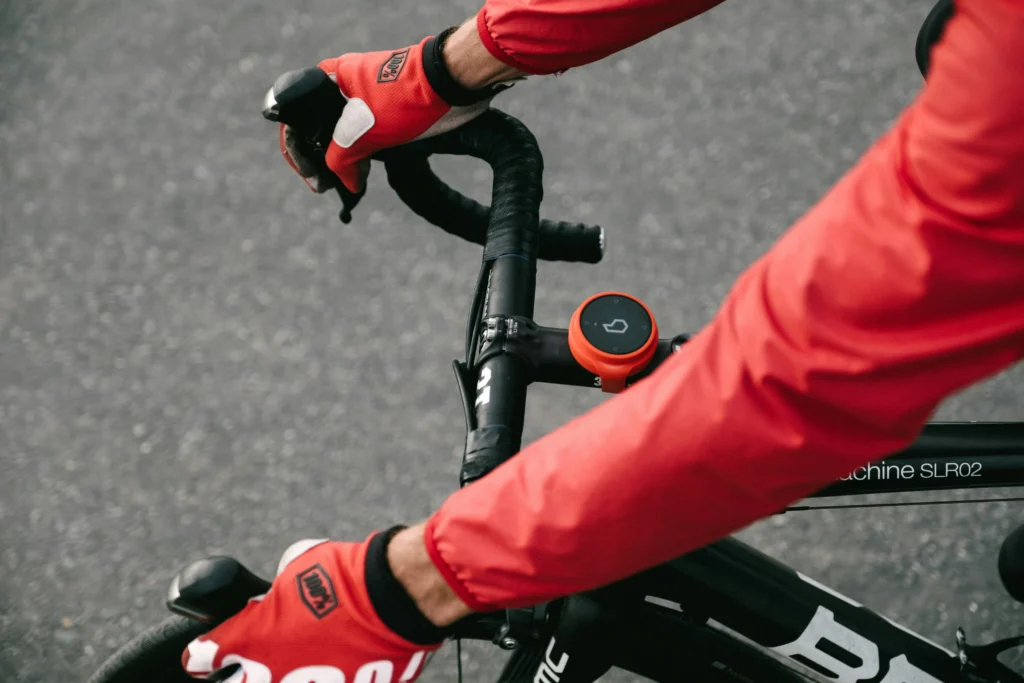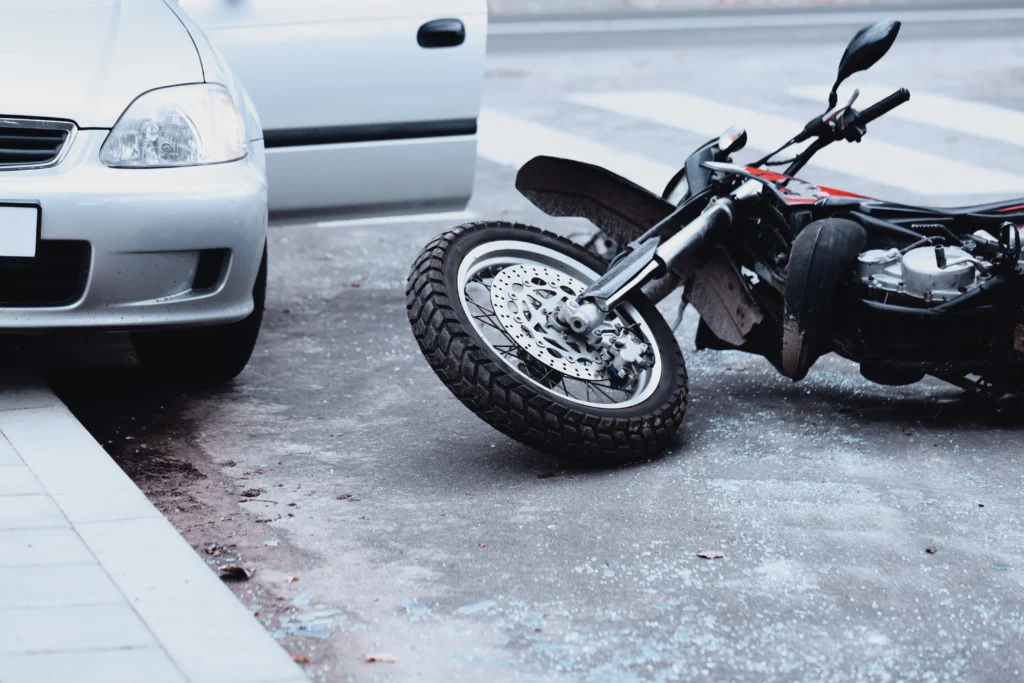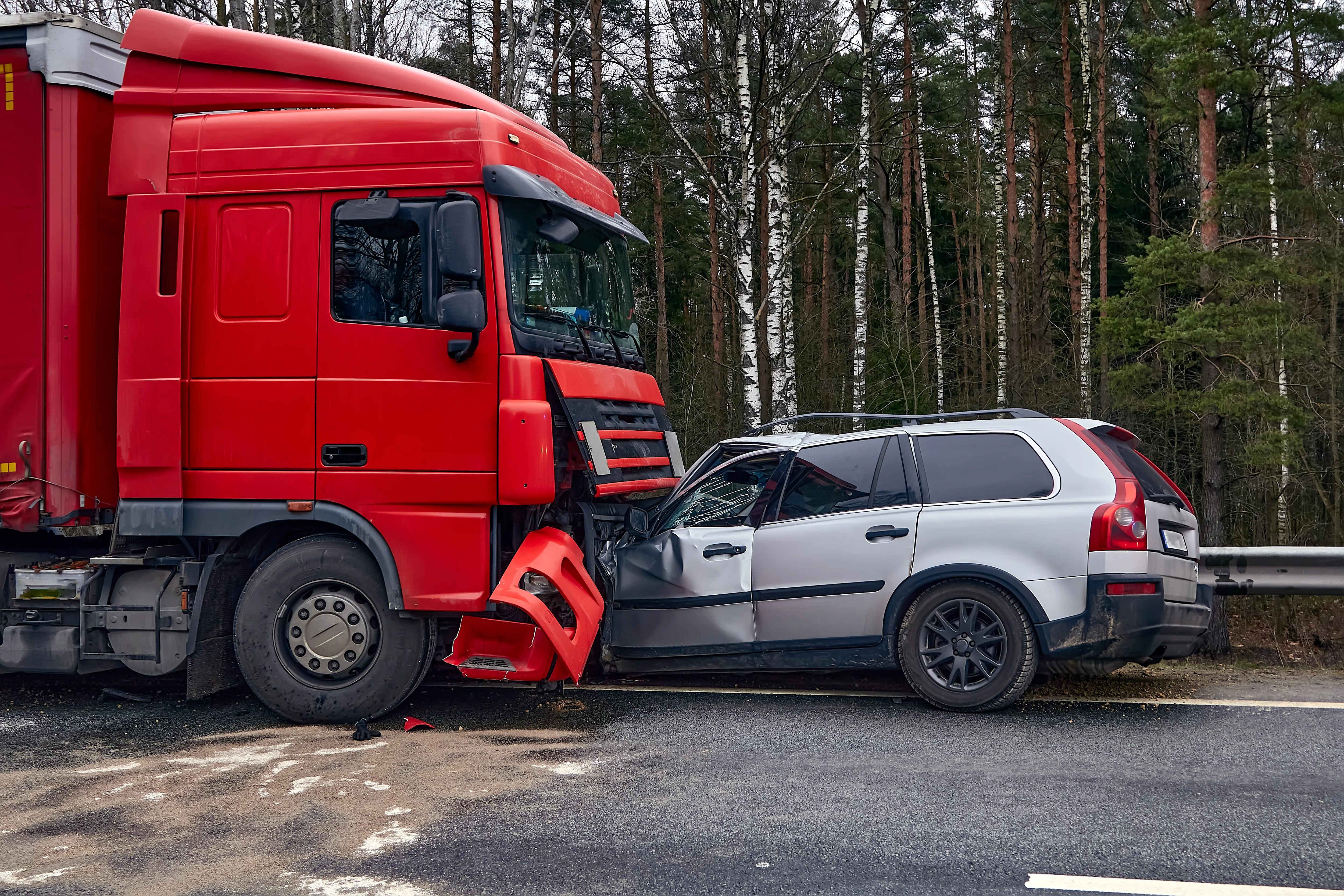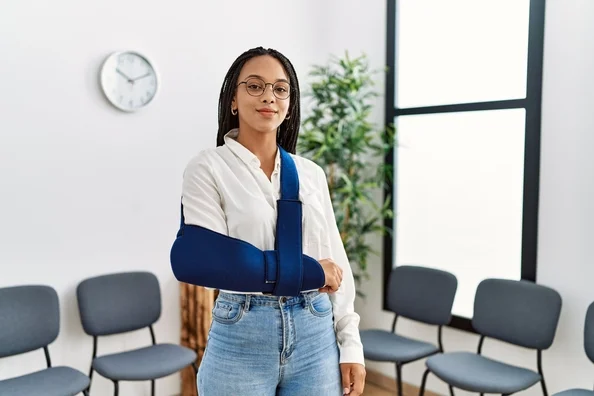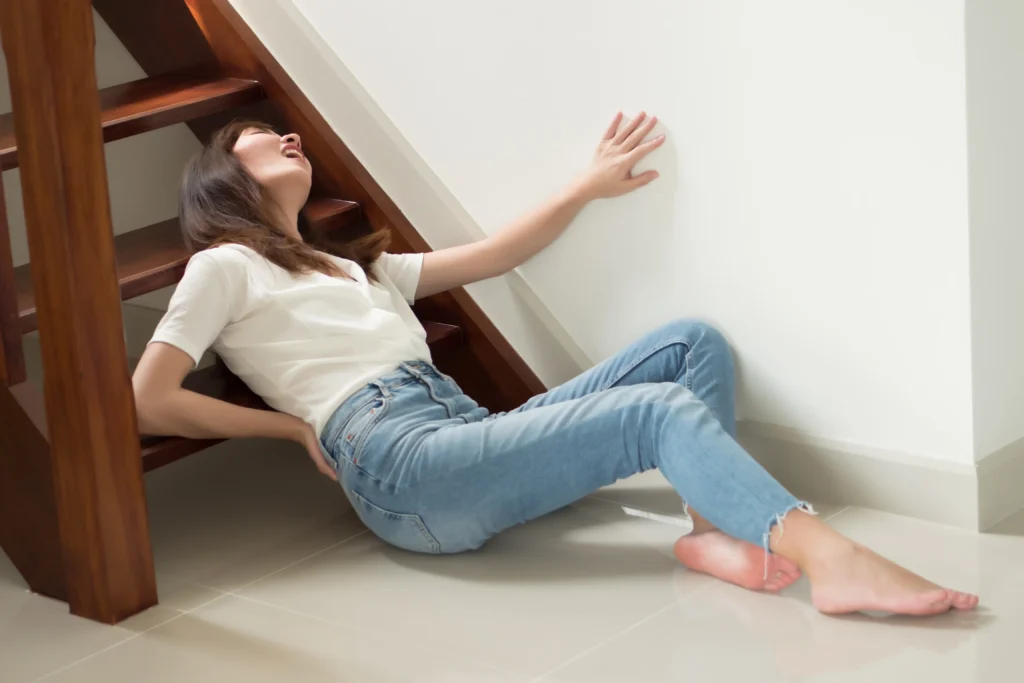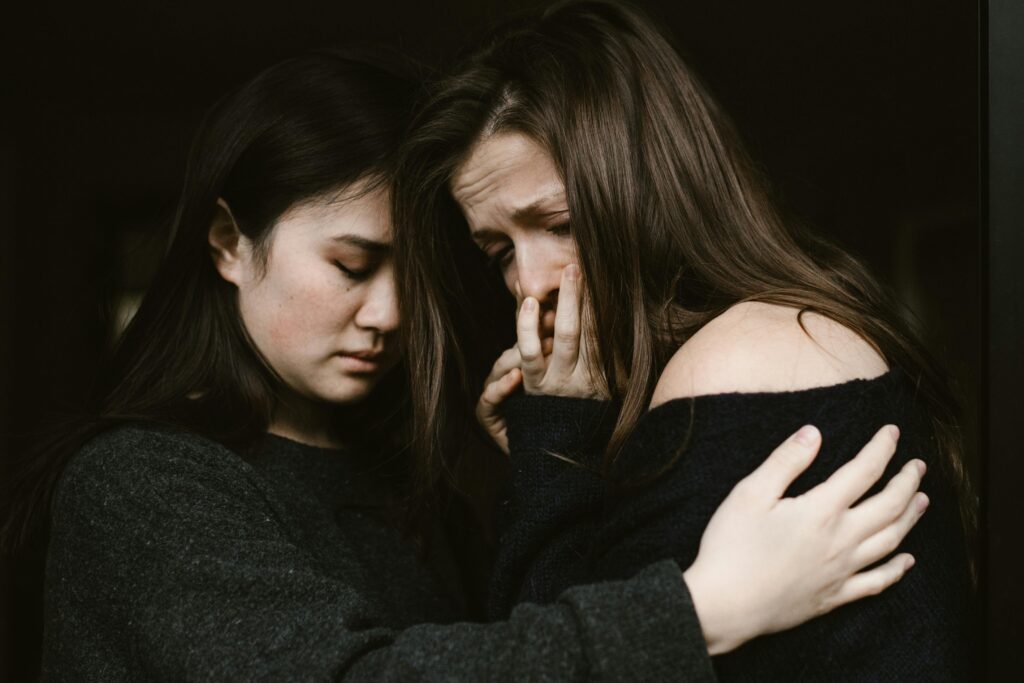Washington Slip and Fall Lawyers Ready to Help
A slip on an ice patch outside a supermarket in Spokane. A tumble over rough pavement in front of an apartment in Tacoma. Broken stairs at a shopping center in Seattle that put somebody in the hospital. These are not accidents. They are warning signs of negligence. If a property owner failed to make their premises safe, you may be able to get compensation under Washington slip and fall law.
Falls are among the most prevalent causes of people visiting emergency rooms in Washington State, according to the CDC. Often, they can lead to broken bones, hospital stays, and lost time at work. We act fast to determine what occurred, discover the truth, and protect your right to receive damages.
If you fell in Washington, anywhere, call Bernard Law Group at (206) 312-3908. We handle slip and fall injury cases from Vancouver to Seattle and we don’t charge any fees upfront. We only get paid if you win.
Who Can Be Held Responsible After a Washington Slip and Fall Injury
Falls in Washington happen inside stores, outside apartment buildings, across parking lots, and on public sidewalks. The legal question is not just where it happened but who had control over that space. Our Washington slip and fall attorneys investigate property ownership, maintenance responsibilities, and prior complaints to determine who should be held legally accountable.
Under state law, responsibility often falls on the property owner, business tenant, government agency, or private management company. These parties must keep their premises safe and free of hazards that can lead to injury. When they fail, our firm builds a case with photographs, witness statements, and repair history records.
Businesses in Washington Must Protect Customers From Dangerous Conditions
Commercial properties, especially those in busy retail corridors like Rainier Avenue in Seattle or Division Street in Spokane, see high foot traffic every day. That makes fall hazards more likely. Store owners must clean spills, fix uneven surfaces, and post warning signs in areas that present a slipping or tripping risk.
If a customer falls due to negligence, such as a grocery store failing to mop up a leak or a gym leaving flooring unsecured, the business may be liable for damages. We review security footage, inspection logs, and employee schedules to prove whether the hazard was ignored.
The National Institute for Occupational Safety and Health (NIOSH) highlights the risks of unaddressed floor hazards and how simple safety protocols prevent injuries. When businesses skip these steps, injuries follow.
Leased Commercial Space Often Involves Shared Legal Responsibility
In Washington, many retail stores and franchises rent space from a commercial landlord. While the store handles daily operations, the building owner or property manager often controls structural maintenance. This can include lighting, sidewalks, and shared entries.
If a fall occurs in these shared areas, liability may extend beyond the business. We obtain lease contracts and investigate which party was responsible for repairs. By naming every liable party, we increase the chances of a full recovery.
Management Companies Must Follow Safety Protocols
Large properties often rely on third-party management companies. These companies schedule repairs, handle maintenance teams, and respond to safety complaints. When a fall occurs due to delayed repairs or ignored complaints, the management firm may be part of the claim.
We gather maintenance schedules, complaint logs, and internal communication records. These documents can confirm whether the company knew about a hazard but failed to act.
Landlords Can Be Held Accountable for Falls on Rental Property
Falls in apartment complexes, duplexes, and rental homes are common throughout Washington cities like Kent, Spokane Valley, and Everett. These properties must meet state safety standards. Landlords have a legal duty to fix broken stairs, repair loose flooring, and ensure that common areas are well lit and hazard-free.
If you fell inside your building or while visiting someone in a rental unit, we investigate whether the landlord had notice of the hazard. Under Washington law, the failure to make timely repairs after a complaint can make the property owner financially responsible.
The University of Washington Legal Services Center outlines basic rental safety obligations, many of which are ignored until someone is injured. Our firm uses these standards to hold landlords accountable.
Prior Complaints and Inspection Failures Strengthen Legal Claims
When renters or building staff submit safety complaints before an injury occurs, those complaints become powerful evidence. Our attorneys often obtain emails, maintenance requests, and city inspection records showing that the owner was warned about dangerous conditions.
This kind of documentation shows a clear timeline of negligence. Whether the hazard involved a loose step, water leak, or faulty railing, we demonstrate that it could have been fixed before anyone got hurt.
Public Housing Falls May Involve Additional Legal Complexity
In Washington, some residential properties are operated by local housing authorities. These agencies manage low-income and subsidized housing across counties. When falls happen in public housing, there may be additional procedural steps to pursue a claim.
Our team knows how to file timely notices and document conditions that violate housing safety codes. We protect the rights of tenants who are injured through no fault of their own.
Cities and Counties Are Liable for Unsafe Public Walkways
Slips and trips on public sidewalks, government buildings, or transit areas are more complex than private property cases. But these injuries are still covered under Washington premises liability law. If you fell on a sidewalk with cracked concrete, ice buildup, or exposed construction debris, the city or county responsible may be legally at fault.
Washington’s claim process for public entities is time-sensitive. In most cases, victims have only six months to file a formal claim. The Washington State Risk Management Office explains how these timelines work. Our firm handles the full filing process to prevent missed deadlines.
Local Governments Must Maintain Safe Walking Conditions
Cities like Tacoma, Bellingham, and Renton are responsible for sidewalk repair, snow and ice removal, and hazard marking near construction zones. If your fall happened in a city-owned space, we determine whether the municipality was aware of the risk.
Many slip and fall cases against the government rely on public works complaints, email logs, and repair scheduling records. Our attorneys file public records requests to secure this evidence before it disappears.
Public Transit Stations and Facilities Are Frequent Fall Zones
Bus stops, train stations, and park-and-ride lots in Washington are often poorly maintained. Falls occur when pavement cracks, snow is left untreated, or staircases are damaged. Since these are high-traffic areas, injuries can be severe.
We investigate which agency controls the transit space and file claims against King County Metro, Sound Transit, or other regional authorities when required. These cases require aggressive investigation and full documentation.
Construction Sites and Work Zones Can Involve Multiple Liable Parties
Falls near construction zones or inside unfinished buildings are increasingly common in fast-growing cities like Bellevue, Redmond, and Kirkland. If you were a visitor, pedestrian, or delivery driver who slipped due to debris, temporary walkways, or wet flooring, multiple contractors may be liable.
We identify the general contractor, subcontractors, and property owners responsible for site safety. These claims often involve commercial insurance carriers and detailed OSHA documentation. The U.S. Department of Labor tracks standards for preventing fall-related injuries, and we use those standards to support our legal arguments.
Fall Hazards at Job Sites Often Involve Code Violations
Construction companies must follow local building codes and industry safety protocols. We work with engineering and building code inspectors to identify where those rules were violated. If scaffolding was unstable or pathways lacked traction, we include those findings in your claim.
Falls at these sites can cause spinal trauma, broken hips, and traumatic brain injuries. We coordinate care documentation and lost wage evaluations to show the full impact of the fall.
Property Owners Are Responsible for Unsafe Site Access
In some cases, the owner of the construction property may be liable if visitors were allowed on-site without proper signage or protection. These owners must maintain safe walkways, even during renovations or major development.
We examine how the property was maintained, whether access was clearly limited, and whether injuries occurred in areas that should have been blocked off.
Where Washington Slip and Fall Accidents Happen Most Often
Slip and fall accidents in Washington are not random. They follow patterns that point directly to poor maintenance, neglected property, and unsafe design. From downtown Seattle sidewalks to parking garages in Spokane, falls often occur in places that attract heavy foot traffic but receive little upkeep. Our legal team investigates these zones aggressively, because location reveals a lot about liability.
We have seen dangerous walking conditions in every region of the state. These include icy stairwells in Yakima, broken flooring in Everett shopping centers, and dimly lit hallways in Tacoma apartment complexes. Each location tells a story. The hazard was not removed. The warning was not posted. The injury was not an accident. The Washington State Department of Health has reported that unintentional falls are a top cause of hospitalizations, particularly for older residents. These injuries are preventable, and someone is usually at fault.
Grocery Stores in Washington Frequently See Fall Hazards
Grocery stores are among the most common places where fall injuries happen. Floors are often wet, aisle displays create blind spots, and refrigeration leaks go unaddressed. Customers walk in unaware of the risks. Many stores across cities like Renton and Vancouver fail to train staff on proper cleanup and hazard marking procedures.
Slip and fall cases in grocery stores often involve surveillance footage, customer complaints, and outdated inspection logs. When store managers skip scheduled floor checks or leave puddles near produce areas, we gather the evidence that proves negligence. We also coordinate with medical providers to document the impact of the fall.
Apartment Complexes in Washington Create Repeated Fall Risks
Poor lighting, slick walkways, and broken stairs all contribute to falls inside and around residential buildings. In Seattle, Spokane Valley, and Federal Way, tenants often report hazardous conditions that go ignored for weeks. That silence from management becomes powerful legal proof after an injury occurs.
We regularly pursue claims against property management companies that neglect repairs, delay snow removal, or fail to fix cracked pavement. These fall zones are predictable. They reflect a pattern of property neglect and inadequate response. The U.S. Department of Housing and Urban Development outlines building safety requirements that apply to many Washington rentals.
Shared Walkways and Stairwells Require Continuous Maintenance
Many apartment buildings in Washington include common areas that serve multiple units. These spaces must meet safety standards. Landlords and management companies must monitor these zones for leaks, obstructions, and trip hazards. We investigate who was in charge of maintaining the surface where the fall occurred.
Even a broken step or missing handrail becomes a serious risk when left unrepaired. Our firm photographs the hazard, contacts past tenants, and reviews prior complaints to build a strong claim.
Outdoor Staircases and Sloped Entryways Are Especially Dangerous in Winter
During colder months, stairs and walkways outside residential buildings can become slick with ice. When owners or property managers fail to apply salt, post warnings, or provide adequate lighting, the risk of injury increases. Falls on icy stairs often cause head trauma and spinal injuries.
We use weather data, maintenance schedules, and witness statements to prove that the dangerous condition was avoidable. These details help establish liability and secure fair compensation.
Parking Garages and Retail Lots Are High-Risk Fall Locations
Private parking garages and retail lots are full of hazards that property owners often overlook. Potholes, loose gravel, standing water, and poor lighting all contribute to fall injuries. In cities like Bellevue, Olympia, and Lynnwood, we have seen cases where people tripped over broken curbs or slipped in unplowed lots outside major retailers.
Washington law requires commercial property owners to keep parking lots reasonably safe for pedestrians. When they fail, we gather site photos, contractor logs, and weather records to show what should have been done.
Falls at Big Box Retailers Often Involve Maintenance Failures
Large retail chains, including those near Southcenter Mall or Northgate Station, rely on fast-moving staff and tight budgets. As a result, basic safety checks fall through the cracks. Missing caution signs, wet entry mats, and unmarked slope changes create dangerous situations for customers and delivery drivers alike.
Our team interviews employees, gathers cleaning logs, and checks whether safety protocols were followed. If not, the corporation may be held liable for the injuries that followed.
City Sidewalks in Washington Often Lead to Injury Claims
Public walkways may look simple, but they frequently contain hidden dangers. Sidewalks with uneven panels, tree root damage, or poor snow clearing have caused serious injuries across Washington. These injuries are common in older neighborhoods of Tacoma, Bellingham, and Walla Walla.
Cities and counties must inspect sidewalks and perform repairs on a reasonable schedule. When a fall occurs in these locations, we determine whether the government agency responsible ignored complaints or failed to fix a known hazard. According to Seattle’s SDOT Sidewalk Maintenance Program, city departments are required to monitor and fix walkways that pose a risk to pedestrians.
Walk Zones Near Transit Hubs Must Remain Clear and Safe
Sidewalks near public transportation stops experience higher foot traffic and greater exposure to bad weather. When cities fail to remove ice or repair damage, they create risks that affect thousands. Falls in these areas often involve commuters, seniors, or people with mobility challenges.
We collect route maps, city work orders, and weather service alerts to prove that officials knew about the hazard and had time to act. These facts help push back against city defenses and protect your right to recover.
Serious Injuries From Washington Slip and Fall Accidents Require Immediate Legal Action
Slip and fall injuries in Washington can cause lasting damage. Many victims do not feel the full impact until days or weeks later. What may begin with a sore back or headache often develops into a long-term injury that interferes with work, mobility, and daily life. From Tacoma stairwell falls to ice-related injuries in Spokane Valley, our firm sees firsthand how severe these cases become.
When you fall on unsafe property, the injuries often go deeper than surface-level bruises. Ligament damage, head trauma, and bone fractures require scans, surgeries, and extended therapy. We document all of it. We also work closely with your medical team to establish a direct connection between your injuries and the unsafe conditions that caused them. \
Falls on Icy Sidewalks in Washington Often Cause Traumatic Brain Injuries
In colder counties like Spokane, Yakima, and Whatcom, unshoveled sidewalks and icy apartment steps regularly lead to head injuries. When a person slips and hits their head, the result can be a concussion or something more severe. Traumatic brain injuries (TBI) may not show symptoms immediately, which makes documentation and early treatment critical.
We gather emergency room records, CT scans, and neurology reports that confirm the cognitive impact of the fall. We also handle all insurance communication so clients can focus on medical recovery. Our team routinely handles brain injury cases like these and includes future care in every settlement demand. For more on how head injuries disrupt long-term function, see the Brain Injury Association of America.
TBI Symptoms Are Often Ignored Until It Is Too Late
Many clients report headaches, confusion, blurred vision, or mood swings after a fall. These are all signs of a brain injury. But insurance companies often claim the symptoms were preexisting or unrelated. That is why we move fast to establish your baseline and gather expert evaluations.
If you fell outside a business, on public stairs, or in a retail store and struck your head, you may be eligible for full compensation. We build cases that reflect the full scope of neurological injury.
Slippery Floors in King County Malls Often Lead to Broken Hips and Legs
Large shopping centers in Bellevue, Tukwila, and Seattle see thousands of visitors each week. Poor maintenance and water tracked in from rain and snow create slippery tile walkways that frequently cause lower body injuries. Falls in these environments often result in fractured hips, broken femurs, or crushed knees.
Hip fractures are common in older adults but can impact anyone when the fall occurs at the wrong angle. These injuries typically require surgery and inpatient recovery. In many cases, clients lose income during recovery or cannot return to the same line of work. Our legal team includes those losses in our demand to insurers.
The American Academy of Orthopaedic Surgeons identifies wet indoor surfaces as one of the most preventable causes of serious fractures.
Bone Fractures After a Washington Slip and Fall Lead to Long-Term Losses
Broken bones are not always visible at the scene. Ankle fractures, wrist breaks, and compression fractures in the spine can develop pain days later. These injuries affect everything from walking to driving and carrying weight.
We coordinate orthopedic imaging, physical therapy documentation, and pain management records to establish the true cost of the injury. From Redmond to Richland, our firm pursues every angle of medical and wage loss tied to fracture claims.
Sudden Falls in Snohomish County Garages Cause Severe Back and Spinal Injuries
Parking garages in cities like Everett and Lynnwood are often poorly lit, uneven, or wet. When someone falls unexpectedly in these conditions, the spine takes the full impact. Slipped discs, pinched nerves, and spinal cord damage are common after these types of falls.
Our attorneys work with diagnostic teams to collect MRI scans, treatment plans, and surgical referrals. When spine trauma causes mobility issues or leads to chronic pain, we demand compensation that reflects a lifetime of care needs. Delayed treatment often weakens claims, so we urge victims to seek immediate medical care after any fall involving the lower back.
Spinal trauma is one of the leading causes of permanent disability in adults, according to the Mayo Clinic.
Lower Back Injuries Can Prevent Return to Work in Physical Occupations
Clients who work in construction, warehousing, or delivery often cannot return to their jobs after a spinal injury. These falls may lead to early retirement or permanent restrictions. Our firm collects job history, wage records, and functional evaluations to show how the injury changed your financial future.
We also consult with vocational analysts who explain what retraining or accommodations may be required. This helps increase the value of the settlement by connecting the physical injury to the economic harm.
Repeated Falls in Eastern Washington Residences Cause Soft Tissue Damage
Not every injury shows up on an X-ray. Torn ligaments, muscle damage, and joint instability often result from falls on staircases, patios, or uneven sidewalks. These soft tissue injuries cause pain that lasts for months. They often limit walking, lifting, and physical activity.
We frequently handle cases involving ACL tears, rotator cuff injuries, and complex ankle sprains. These conditions require physical therapy, injections, and in some cases, surgery. Without documentation, insurance companies treat them as minor. We make sure that does not happen.
Chronic Pain After a Slip and Fall in Washington Is a Recognized Legal Injury
Pain that limits function or reduces quality of life deserves compensation. Insurance carriers often resist paying for pain and suffering unless the claim includes strong documentation. Our team tracks treatment progress and long-term limitations so that your pain is not dismissed.
We also pursue damages for loss of enjoyment of life, which can include hobbies, family activities, and other routines that the injury disrupted.
Speak With a Washington Slip and Fall Attorney Before Evidence Disappears
If you suffered a fall on unsafe property in Washington, do not wait. The longer you delay, the more control the insurance company gains. Property owners repair hazards fast, but your injuries stay with you. Our legal team takes immediate steps to preserve surveillance footage, secure witness statements, and file claims before critical timelines expire.
We serve injury victims from Seattle to Spokane and handle cases across every county. Whether your fall happened in a grocery store, apartment complex, or on a public sidewalk, Bernard Law Group is ready to take action. You will not pay anything unless we recover compensation.
Call 206-312-3908 now to schedule a free consultation or contact us online. We will review your Washington slip and fall claim and explain how to protect your rights moving forward.
Practice Areas
Trust Us With Your Personal Injury Claim
If you or a loved one have been injured, Bernard Law Group will fight for you every step of the way. We will give our all to secure the compensation you rightfully deserve.
Contact usfor a free consultation.
Phone: (206) 312-3908
